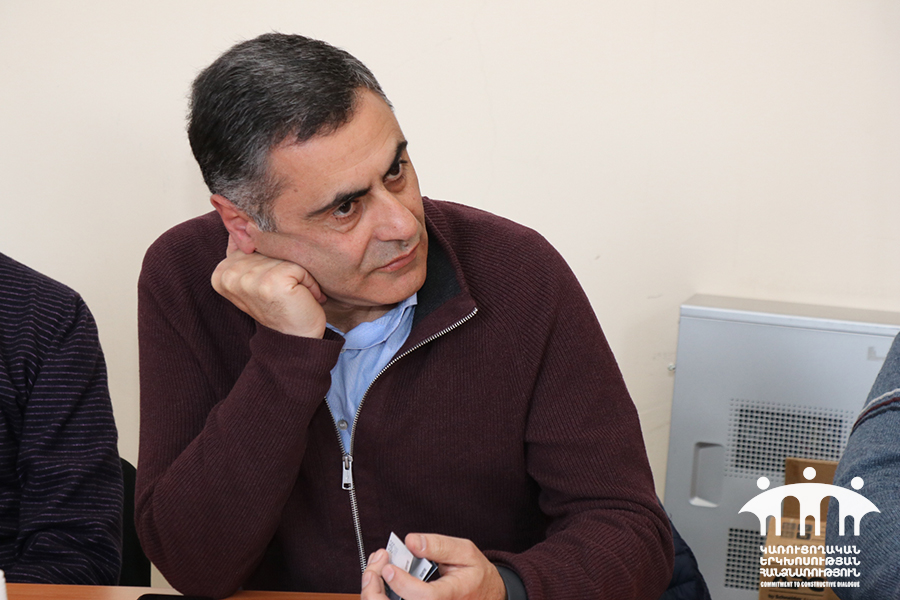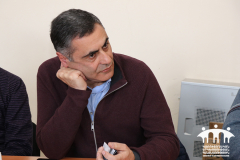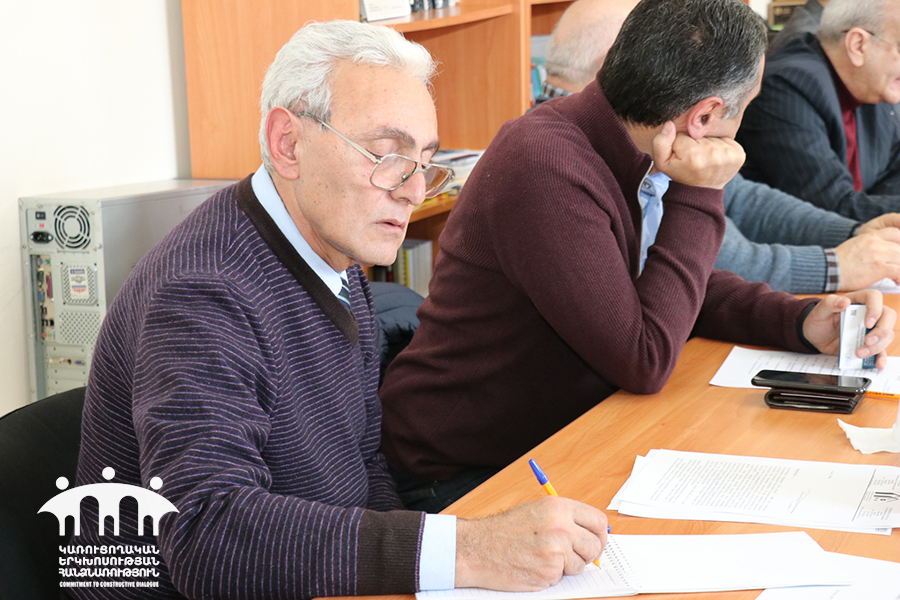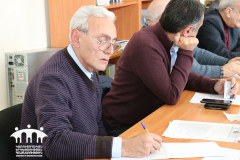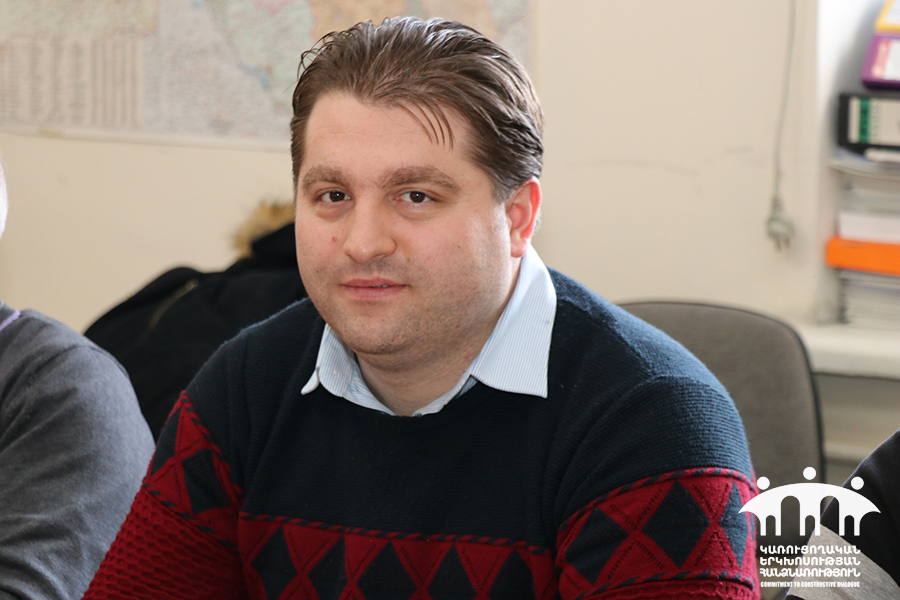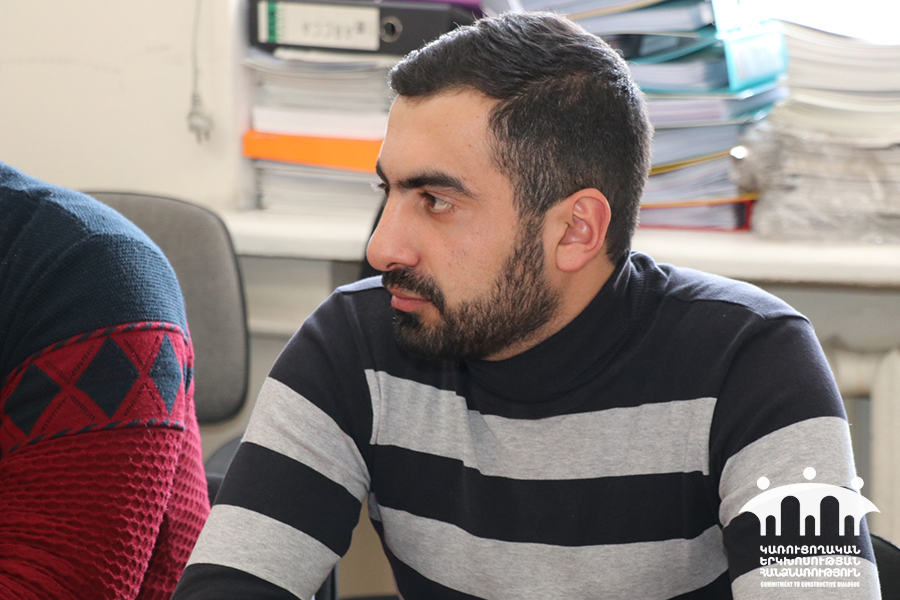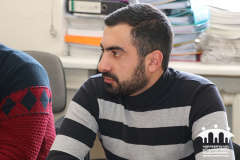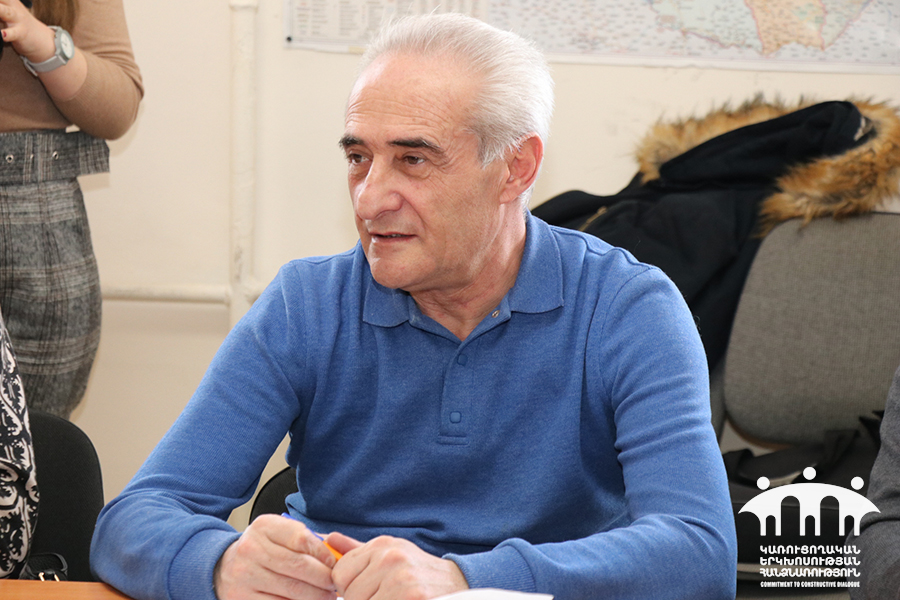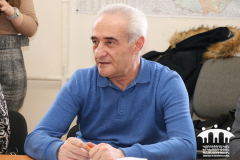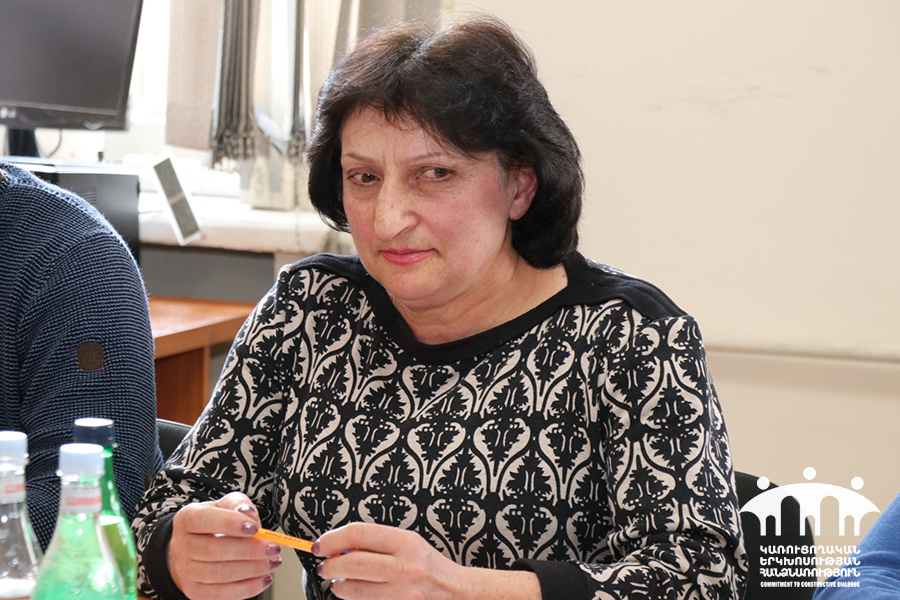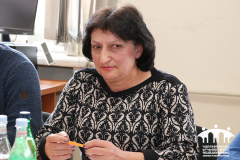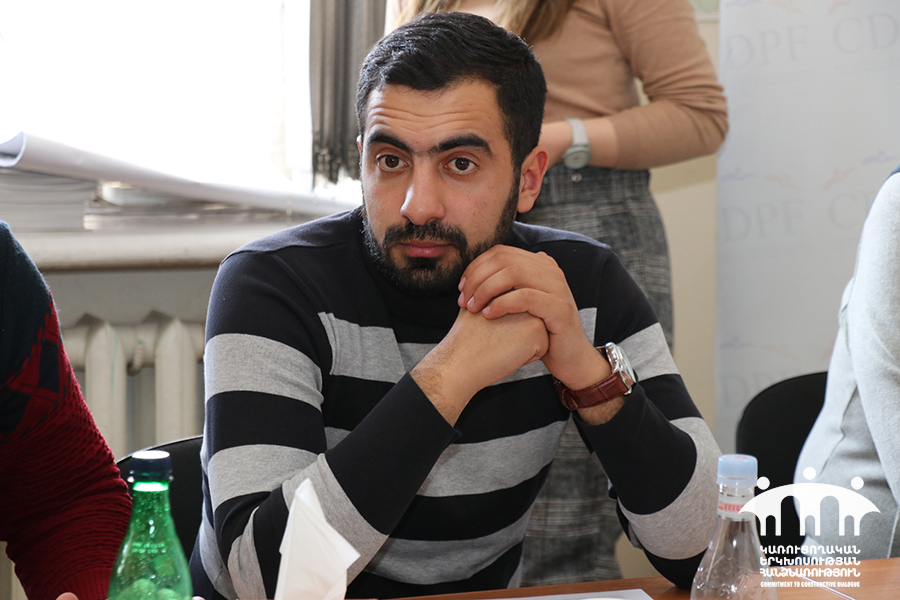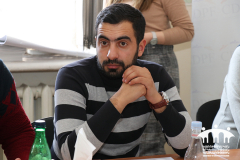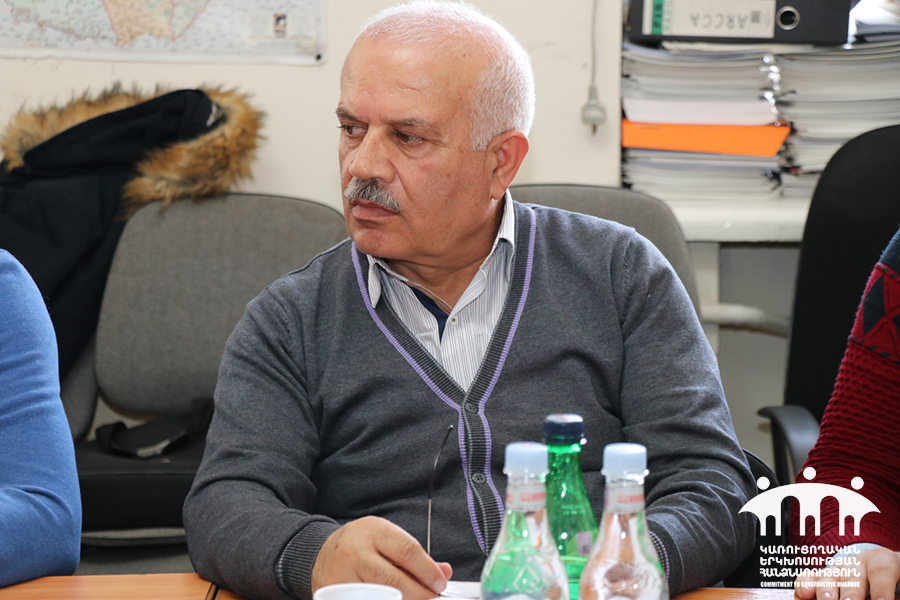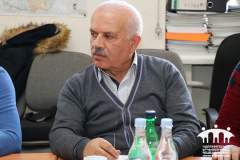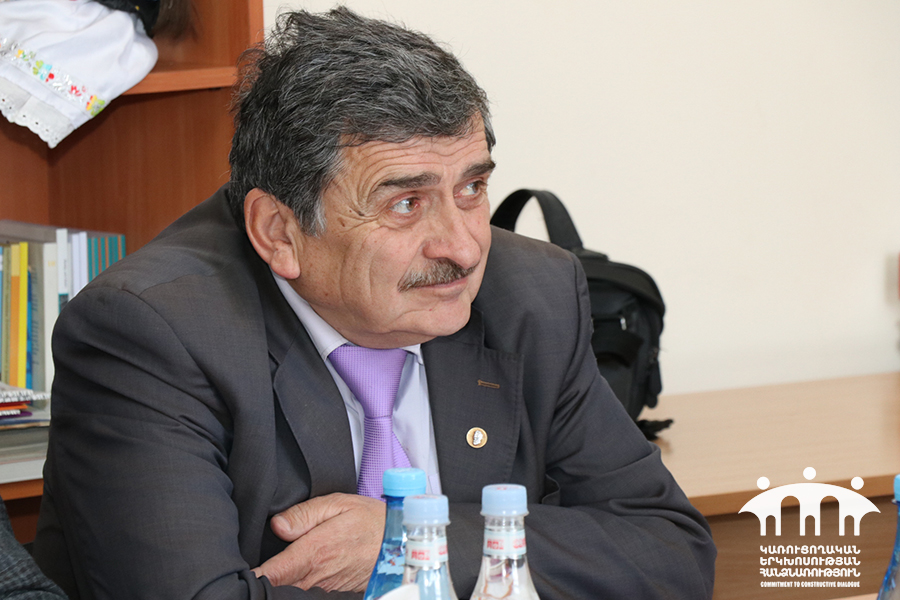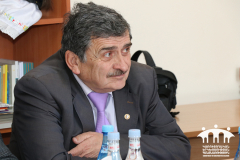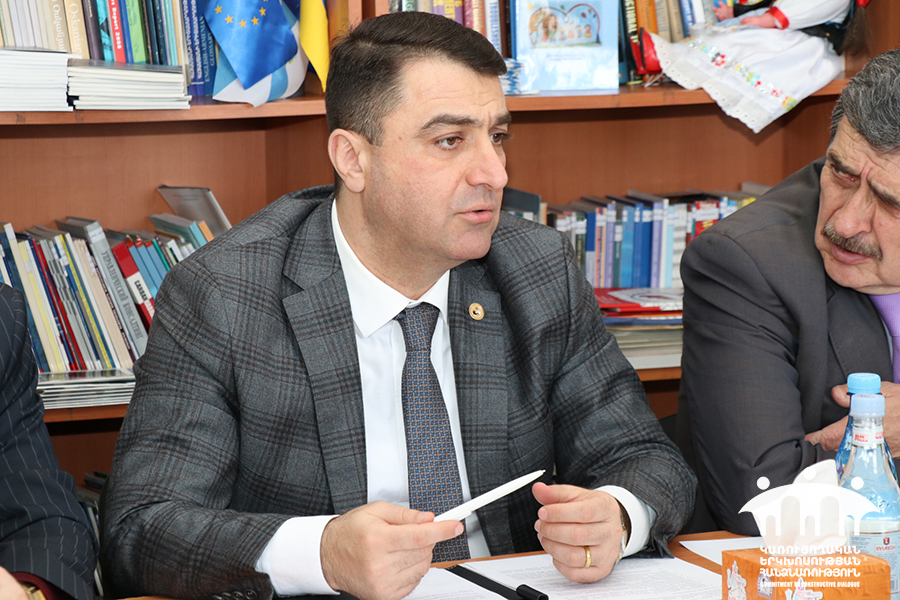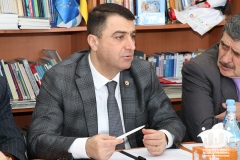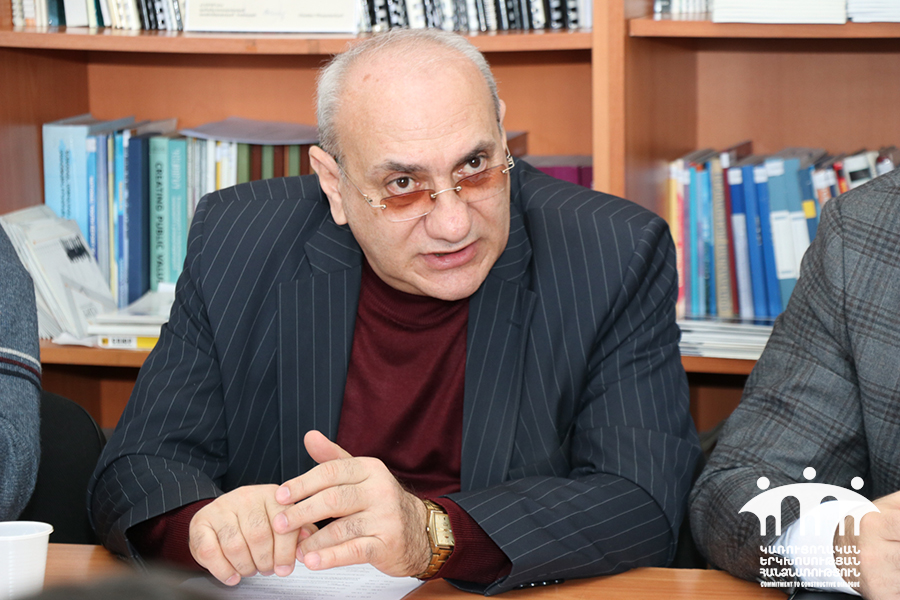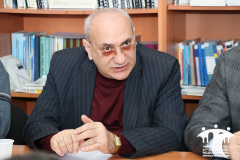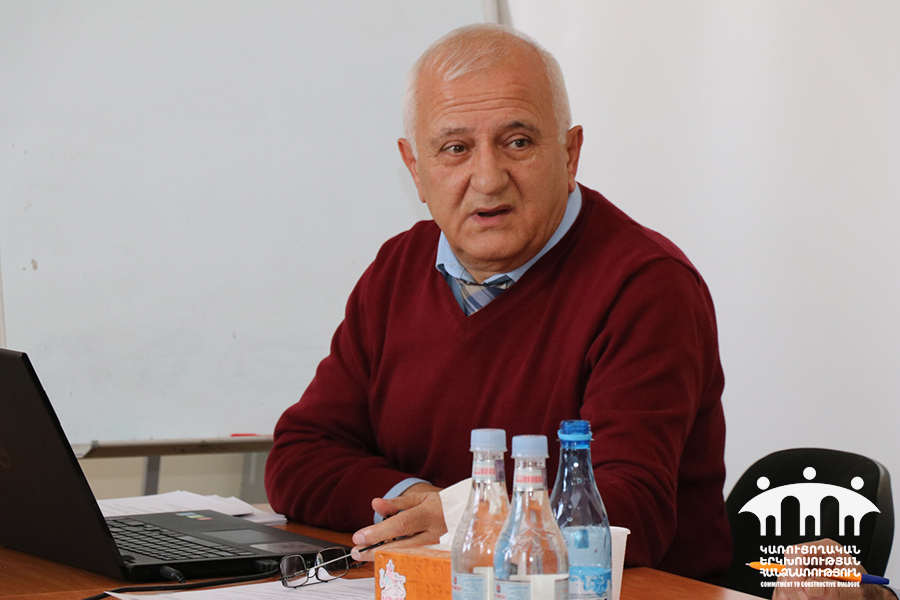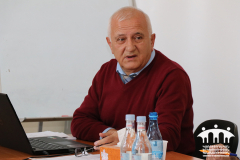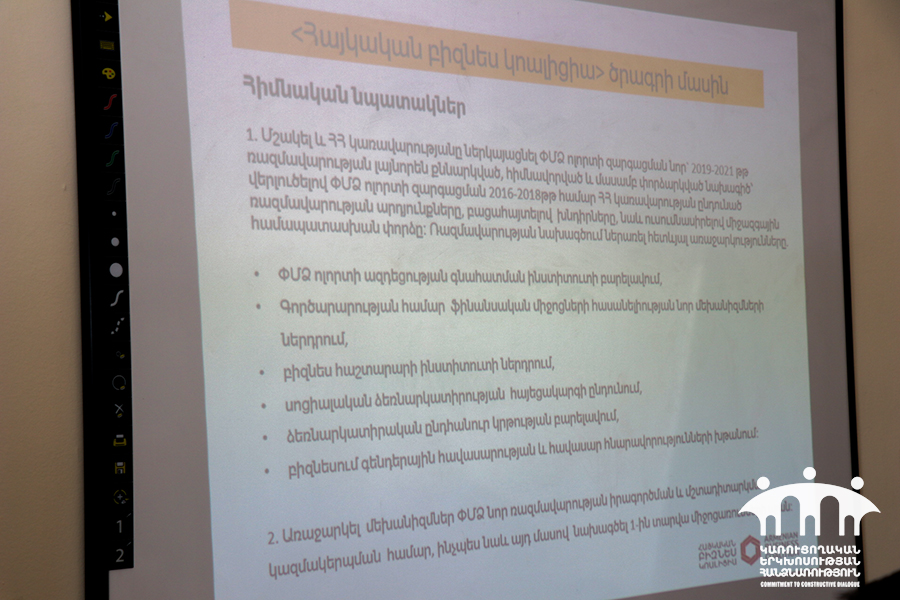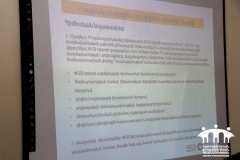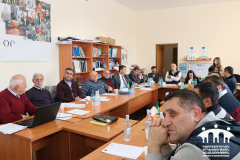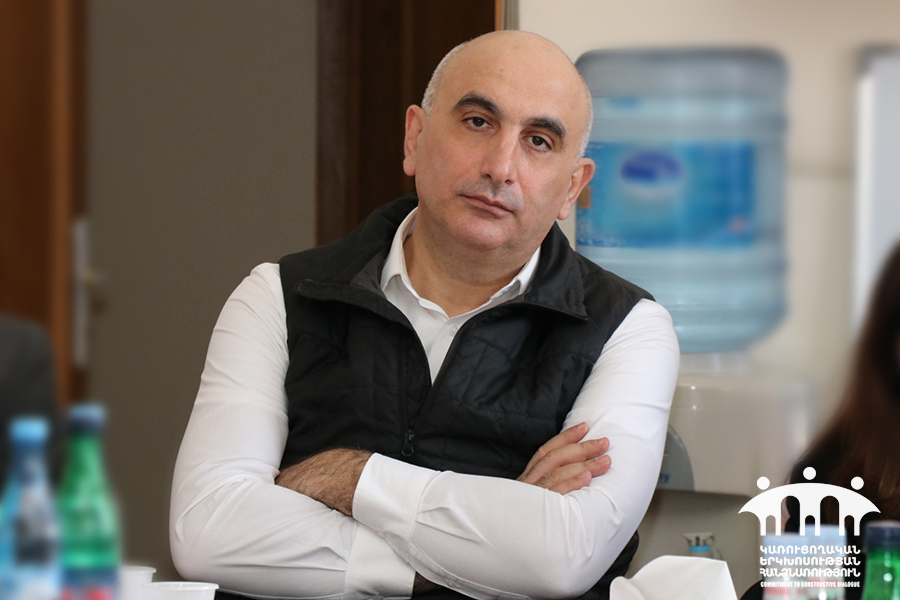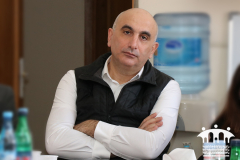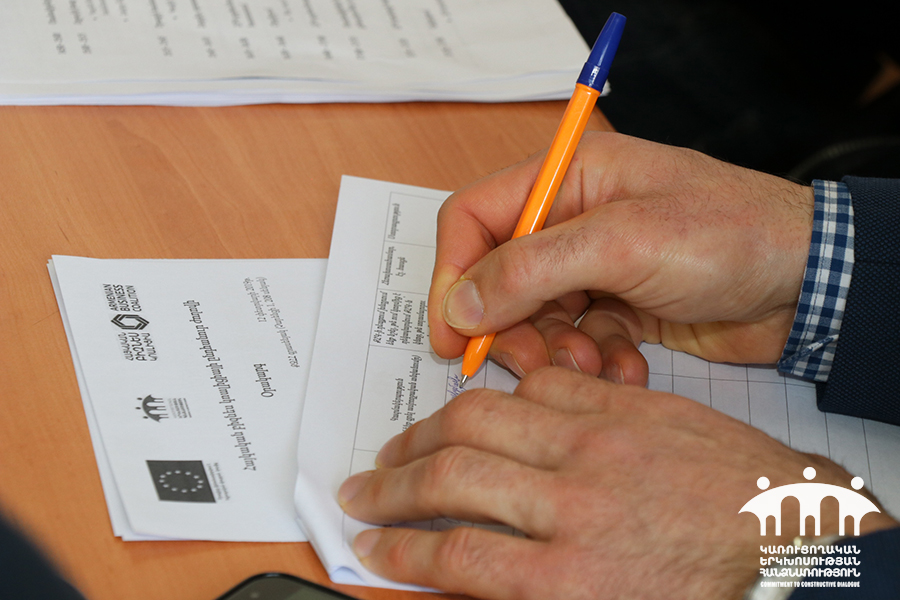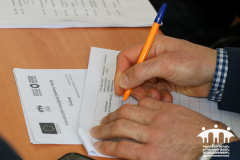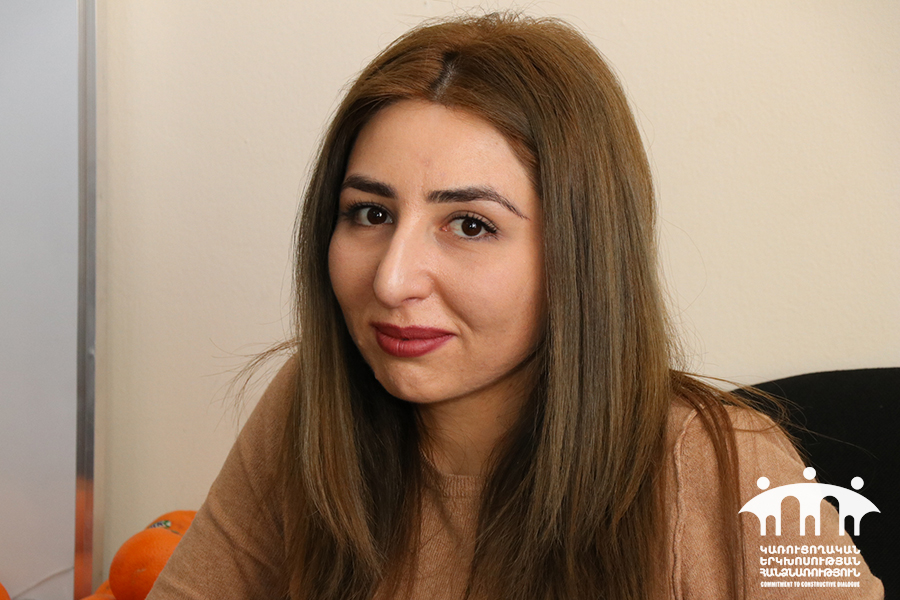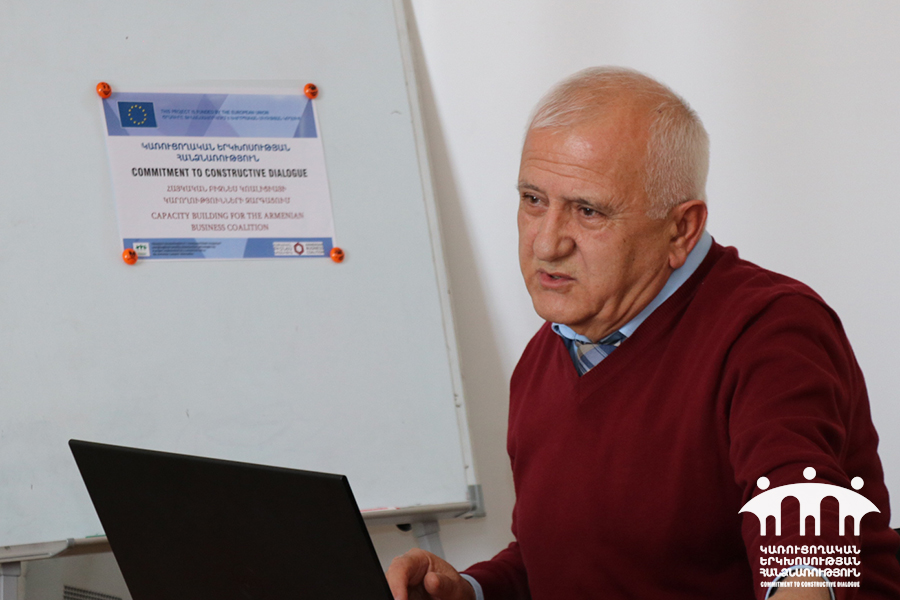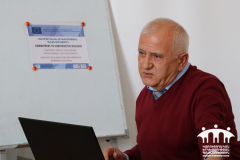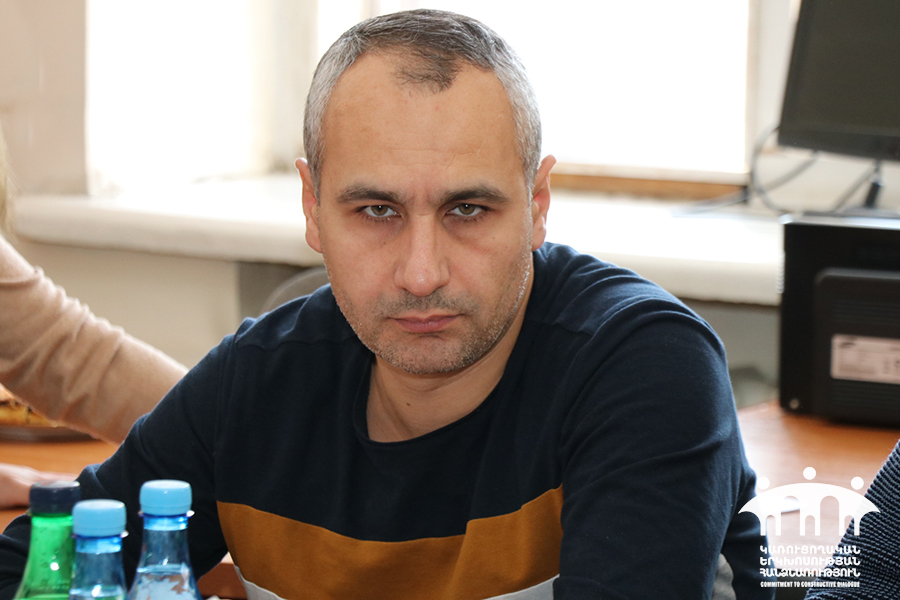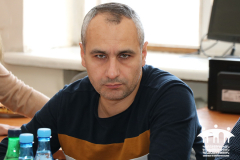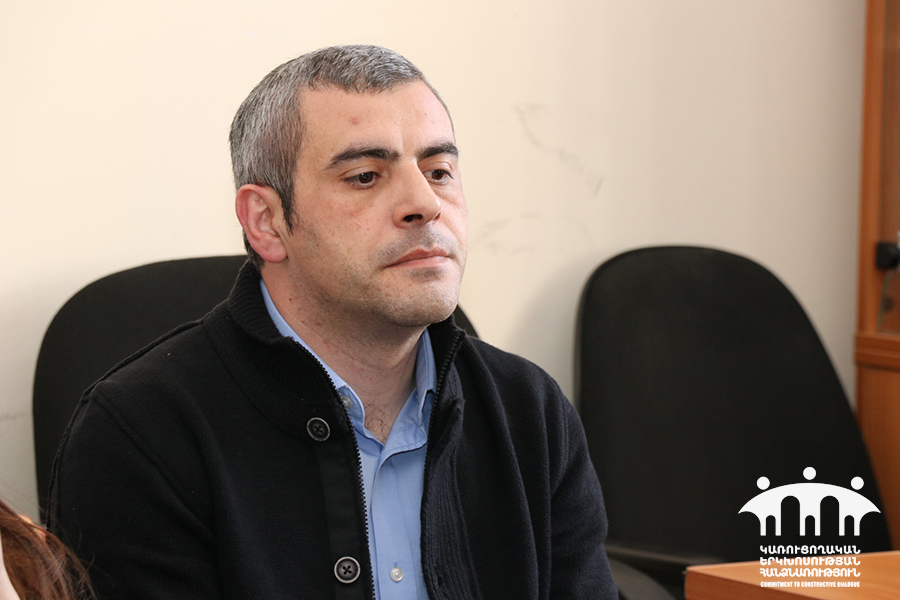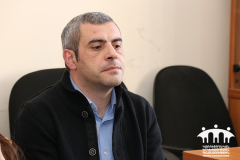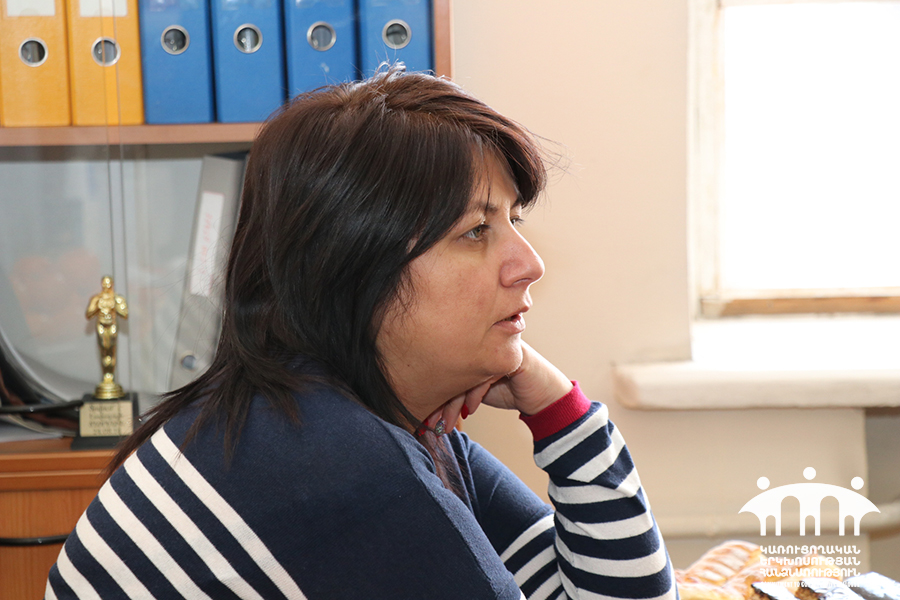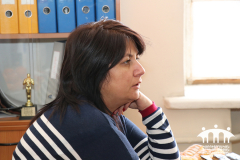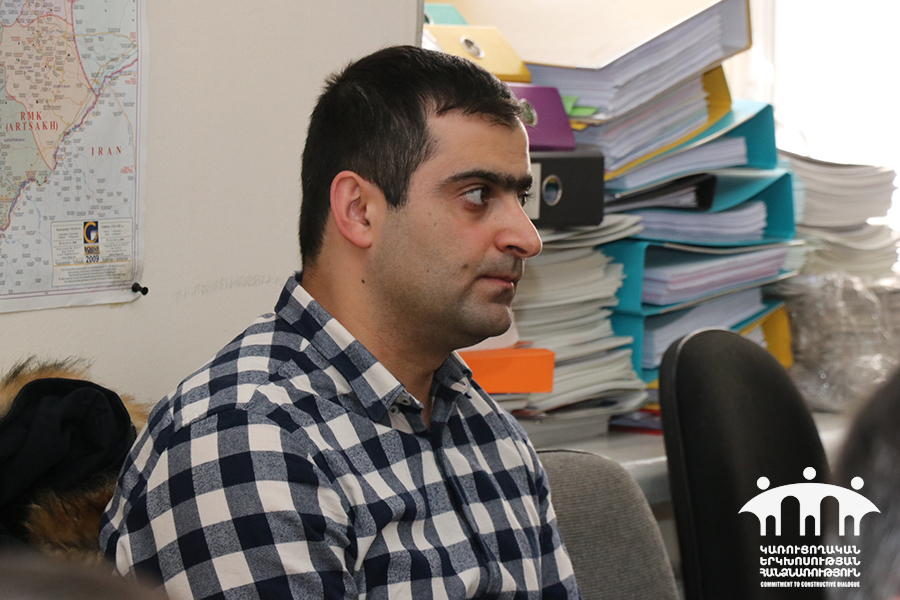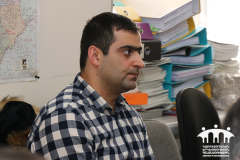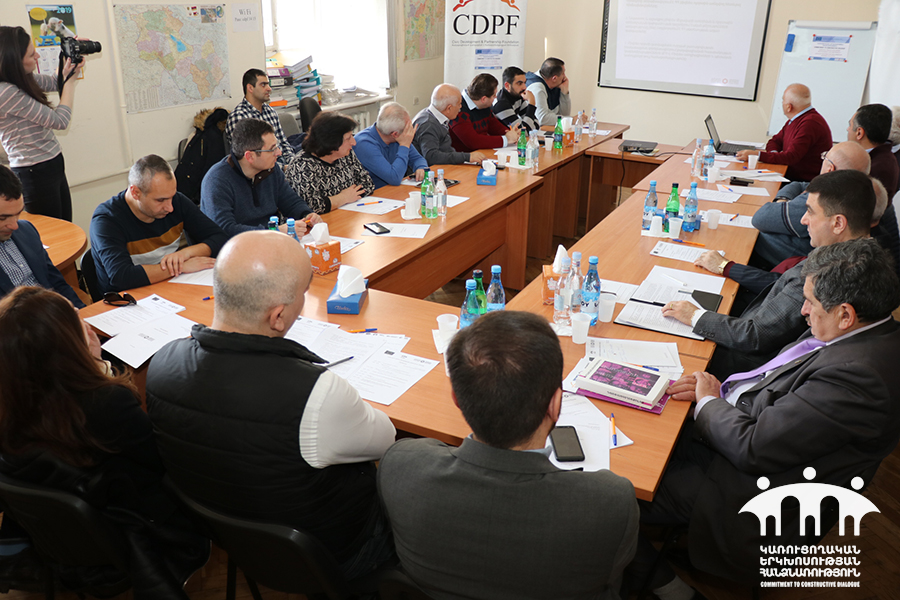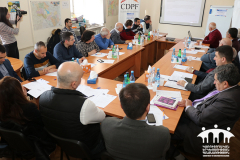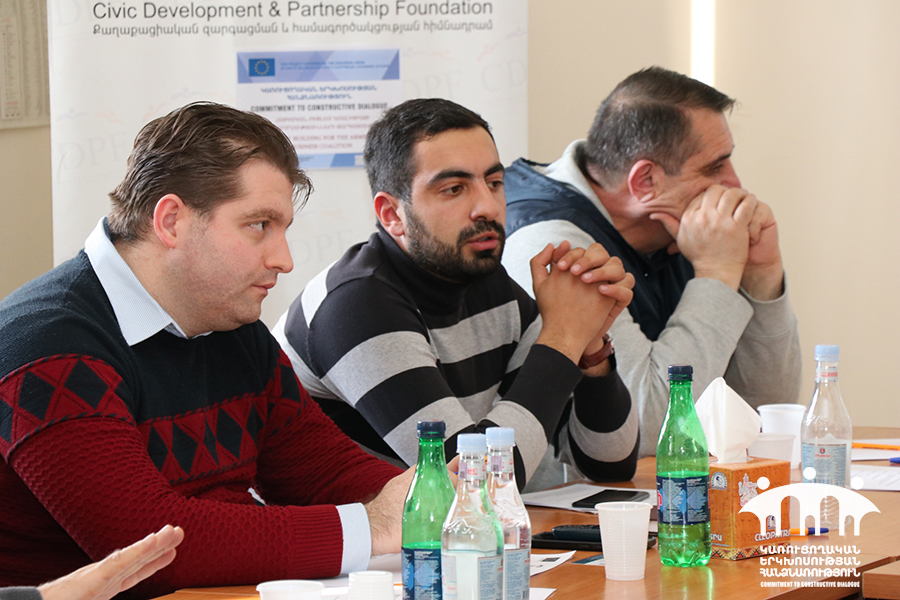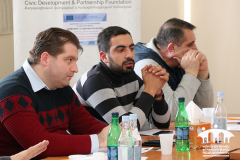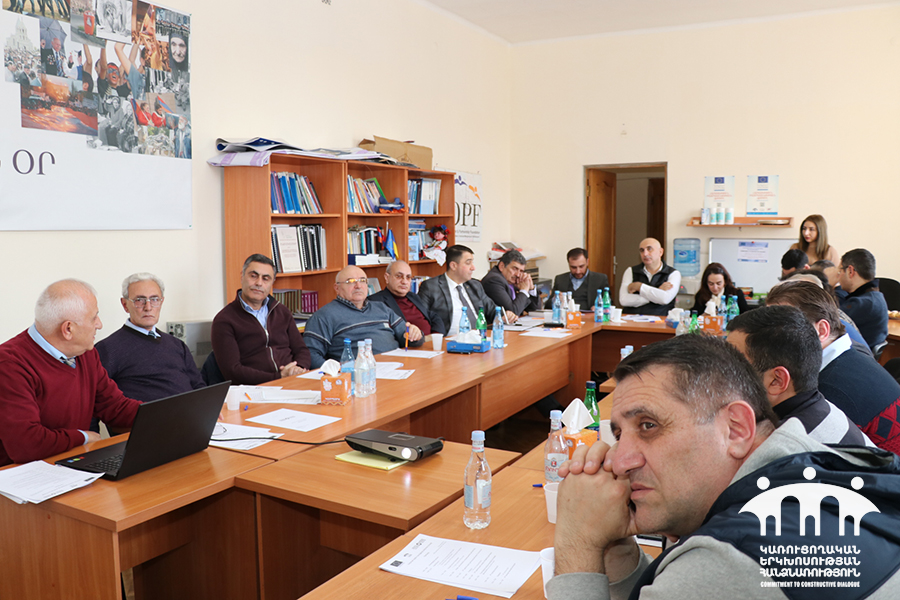
The meeting of the members of Armenian Business Coalition (ABC), which was established on 20 February, 2018 in the framework of the “New SME Development Strategy for Armenia” project implemented in the scope of the EU-funded “Commitment to Constructive Dialogue” Project was held on 12 February, 2019.
Mr. Karen Zadoyan, “Commitment to Constructive Dialogue” Project Manager, said in his welcoming speech that the formation of the coalition is a good opportunity to gather representatives of the sector in one place, which will have a powerful voice not only for dialogue with the government, but also to receive the support of other donor organisations. This will allow the Coalition to participate in sectoral reforms in the near future.
“There are three factors necessary for the development of coalition: a strong membership, a clear vision and strong expertise for a constructive dialogue to be able to have a clear impact on public policies,” Karen Zadoyan said.
“I believe there should be solidarity approach should be the basis for coalition membership and development, otherwise it will lead to unhealthy competition,” he added.
Mr. Hakob Avagyan, the founder of the SME Cooperation Association, was pleased to record the fact that such a composition was collected in one place. “If you have had intended to from the very beginning to be effective and have influence, you need to exclude the doubts at least to the level, at which you can speak loudly. One of the strongest sides is that today the word “coalition” is spoken about,” Hakob Avagyan said. He also mentioned that the coalition needs some clarifications in its charter, for example, the conditions for accession to the coalition should be regulated and so on.
Mr. Gagik Vardanyan, Director of Civic Development and Partnership Foundation (CDPF), presented the objectives, tasks and targets of the coalition.
He noted the current lack of the new SME strategy.
“The last strategy was developed for 2016-17 and which is over, and currently there is no new strategy, and this is one of the key issues. The other problem is the weak mechanisms for participation of SME and CSOs in the development, improvement, monitoring and advocacy process of the strategy,” Gagik Vardanyan said.
Introduction of the business ombudsman institute for the improvement of the sector was highlighted as well. The necessity of substantial improvement of the state policy on business education, including education on general social entrepreneurship, as well as elaboration and implementation of modern educational programs was also noted.
As a result of the discussions a decision to approve the coalition regulation was taken. It was decided to provide a two-week term for editorial changes in the coalition’s objectives and membership issues.
Further, the ABC Governing Board was formed. Mr. Gagik Poghosyan, the President of Foundation for Small and Medium Businesses (FSMB) was elected the Chairman of the Governing Board of the Coalition.
The “Commitment to Constructive Dialogue” project is implemented with the financial support of the European Union by a Consortium of civil society organisations, which are the Armenian Lawyers’ Association (lead organisation), Agora Central Europe (NGO based in the Czech Republic), the Armenian Centre for Democratic Education-CIVITAS, the International Centre for Human Development, the SME Cooperation Association and the Union of Communities of Armenia.
The project aims to enhance the influence of civil society organisations (CSOs) and CSO coalitions/networks on public policies in Armenia. This will allow organisations that are already working in sectoral coalitions to access additional resources, new groups of civil society experts to come together and encourage place their causes on the local and national policy agenda, to identify common concerns and priorities and approach government bodies with constructive and strategic policy engagement initiatives.
The project has provided sub-grants to CSOs and CSO coalitions that will be directed to the development of public policies and will have tangible results in the 9 target sectors selected within the project, which are: Justice, Human Rights, Public Finance Management, Business, Education, Social Sector (social inclusion of children with disabilities), Agriculture, Economy and Energy.


